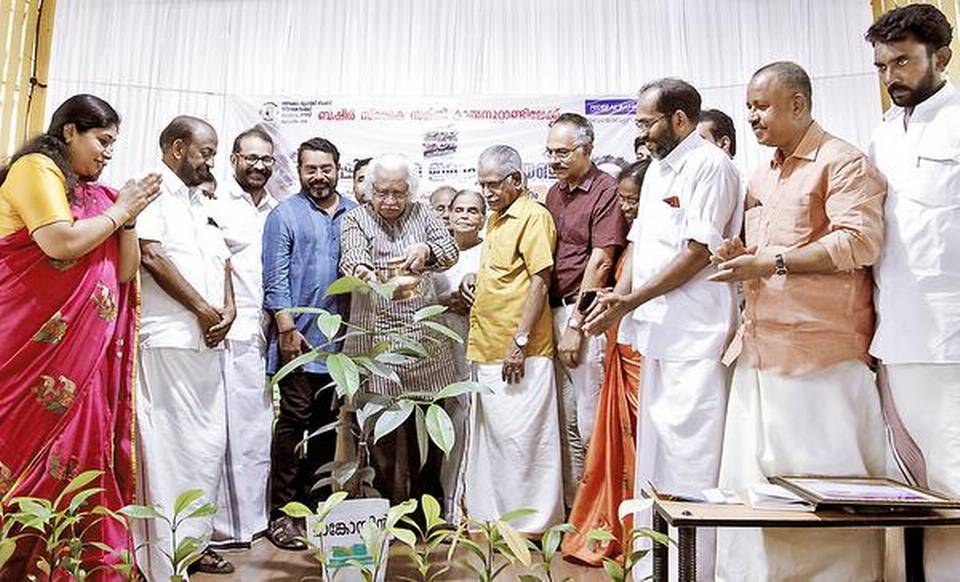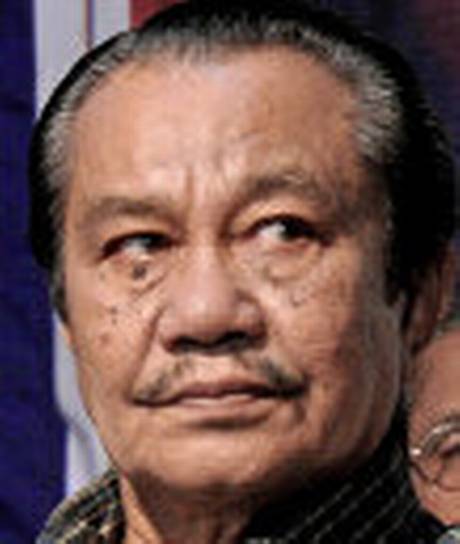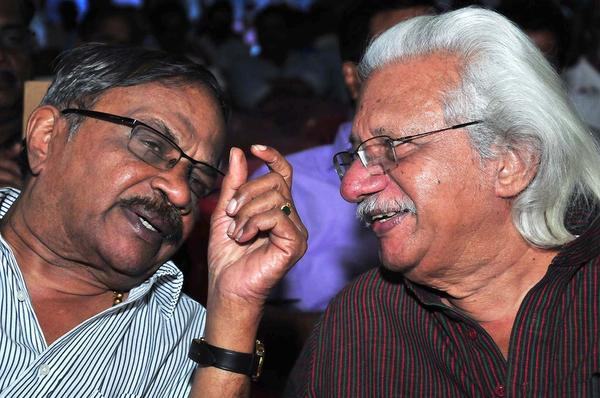KERALA:
Gone are the days when the Muslims of Kerala were thought to have believed Malayalam as the language of Nairs. The Muslims of modern Kerala are greatly indebted to a number of devoted reformers whose dedicated endeavours liberated them from the yoke of illiteracy and cultural backwardness. Late C.N Ahmad Moulavi, in his book on Muslim literary heritage in Malayalam entitled Mahathya Mappila Sahithya Parambaryam, describes the contribution of such reformers.
In fact, Malayalam has been the mother tongue of the Muslims of this region but their dialect was considered relatively inferior. This was because they had neglected learning and teaching the Malayalam language and literature. They were more concerned with Quranic education. Moreover, for the purpose of imparting Islamic knowledge they used Arabic script when they wrote Malayalam. It slowly developed as a literary branch of Malayalam known as the Arabic Malayalam literature.
Arabic-Malayalam Literature
The Arabic-Malayalam literature is exclusively the literature of the Kerala Muslims. It includes more than five hundred books in prose and about the same number of books in verse, on various subjects. Books in prose include translation and explanation of the Holy Quran, Hadith, Jurisprudence, history, stories and fables, narratives, criticism, lexicon, science and etiquette. Many journals and magazines were also published in Arabic-Malayalam.
Critics have wholeheartedly extolled the literary merit of the poems in Arabic Malayalam. They are highly impressed by its originality, rhythmic beauty, lucidity in imagination and expression. The majority of these poems are on religious topics. In fact, this stream of poems had been running parallel to Malayalam poetry for centuries. The earliest work so far traced in Arabic Malayalam poetry is Mohiyauddeen Mala, an ode in praise of Sheikh Mohiyuddheen. Its author, late Khazi Mohammed of Calicut was a contemporary of Ezuthcchan’s (16C) who is considered the father of Malayalam language. A comparative study of Ezuthcchan’s Adhyatma Romayana Khazi’s Mala reveals the latter’s simplicity in expression.
Moin Kutty Vaidyar elevated the Arabic Malayalam poetry to the pinnacle of its golry with his Badr pada pattu (war song on Badr) and Badrul Muneer Husunul Jamal (a love song). War and love have been celebrated topics for poetry of all ages. But what made Vaidyar’s poems real masterpieces of literature is his skilful way of blending form and content into an artistic unity. Through his poems Vaidyar created a language within language, a rare achievement in Malayalam poetry praised equally by famous critics and linguists. Chains of tunes (called Ishals) innovated by Vaidyar still remain to be emulated by latter poets. In fact he is the most popular among Arabic Malayalam poets. His poems provided the Muslims of Kerala with a unique culture identity, uniformity and redouble their pride and prestige. P.K. Haleema, Naduthopil Ayesha Kutty, Kundil Kunhamina are the poetesses whose poems left indelible imprints on Arabic Malayalam poetry.
Though Arabic Malayalam poetry boosted the morale of Muslims in their resistance to colonial invasion. The subjugation of Muslims by the invaders led to a state of stagnation in literary life. Later Muslim reformers used Arabic Malayalam poetry to rekindle the spirit of education and religious awareness. Prominent among these poets cum reformers are T. Ubaid, O. Abu and Punnayarkalam Bapu. The poems fostered by Muslims are generally known as Mappila Pattukal (Mappila songs). The salient feature of these songs is the instantly recognizable peculiarity of its tunes that have by and large influenced the cultural and literary life of Kerala as it is evident in modern Malayalam poetry and film songs.
Muslims today no more use the old script of Arabic Malayalam in their literary contribution. Modern works are all in Malayalam now. However, to a limited extent, efforts are made to preserve the identity of this language through Madrasa education.
Impact of Sanskrit Literary Tradition
Though Muslim themes were introduced into Malayalam poetry by non-Muslim poets since the beginning of the 20th century, the entry of Muslims into the Malayalam literature is of late occurrence because of the attachment of the Muslim poets to Arabic Malayalam. In imitation of the Sanskrit literary tradition Maha Kavyam were composed by Malayalam poets. Rama Chandra Vilasam was written by Azakath Padmanabha. Kurp and Kattakkayam cheriyan Mappila wrote Sree Yeshu Vijayam. But Mahammadam was written only after a long period. Ponkunnam saidu Mohammad, a Muslim scholar in Sanskrit and Malayalam, wrote this Maha Kavyam in the same Sanskrit metre and here the poet attempts to narrate the story of mankind in an Islamic perspective. It also contains a description of the Quran in detail.
Yousef Ali Kecheri is a Muslim poet famous for composing poems with Hindu as well as Islamic cultural background. He has written poems on Quranic themes, the prophet and Muslim festivals. He is a famous composer of film songs.
P.T. Abdul Rahiman is another noteworthy poet who wrote a long poem on Bilal entitled, The Black Pearl.
Both Kecheri and P.T. have won literary awards.
Malayalam Fiction
Anyhow, the Muslim genius made greater achievement in fiction and short stories. Viakkom Mohammed Basheer, a veteran novelist in Malayalam brought a continent of experience in life into the Malayalam literature. His compassionate attitude towards life accompanied by an ironic vision acquainted the Malayalam readers with a new aesthetic sense. His novels and short stories are translated into other Indian and world languages. Umashankar Joshi, the famous Indian writer, counted Tagore and Basheer as the only two Indian writers of originality. M. Mukandan, the pioneer of modernism in Malayalam fiction, once wrote, the Noble Prize is too small a thing to honour Basheer. Basheer’s novels are poetic expression of Muslim myth and Islamic mysticism. My Grand Dad had an Elephant and pathumma’s goats are his masterpieces. He mercilessly satirises the pervasive degeneration that infects Muslim social life. In his writings he had been attempting to create harmony in life through God consciousness.
N.P. Mohammed, another famous novelist, short story writer and essayist, traces the influence of Aryan, Dravidian and Hindu culture elements in the life of Kerala Muslims. His two famous novels named The Oil field and The Eye of God reveal the peculiar socio cultural life of a particular region. They can be called regional novels. He wrote short stories by perusing the Quranic style of expression. Punathil Kunhabdulla, another novelist and story writer, satirises the outdated view and customs prevailing in Muslim social life. Smaraka Shila Kal (Tomb stones) and Marunnu (Medicine) are his famous novels. Both N.P. and Punathil won awards of Kerala and Kendra Sahitya Academy. P.A Mohammed Koya, the father of sports literature in Malayalam, brought to light the social and religious life of the Koya Muslims of Calicut. His Island Stories have endowed the Malayalam short story with a rare aesthetic dimension. U.A. Khader beat a new path when he wrote his short stories anthologized in his famous Trikkotoor Peruma, which is highly appreciated. His style is inimitable.
The most developed literary genre in Malayalam literature is the short story and there are a number of Muslim short story writers such as T.V. Kuchu Bava, Shibabuddeen poithumkadavu, Akbar Kakratil, M.A. Rahima, N.P. Hafiz Mohammad and P.K. Parakhadavu. They are noted for their highest excellence in handling the Malayalam language in its colourfulness and rhythmic beauty.
The history of Malayalam drama will remain incomplete without mentioning the contribution of K.T. Mohammed. He criticizes the social life of the Kerala Muslims in an aggressive language. Ibrahim Vengara, Mohammed Yousef, K.A. Kondungallor and Azeez were renowned Malayalam dramatist.
Religious Writings
In addition to making valuable contribution to the Malayalam literature, Kerala Muslims have been advancing in the field of religious writing. They have published many books aimed at reforming the religious life and introducing Islam to other people as well. Many publishing houses are established. The Holy Quran has been translated into Malayalam by various scholars. Tafheemul Quran of sayyid Maududi has been translated and published in Malayalam through Islamic Publishing House, Calicut, which shines like a pillar of light in the literary life of the Muslims of Kerala. Sheikh Muhammad Karakunnu, the Director of I.P.H., himself wrote about 50 books on various Islamic knowledge. Other publisher like Yuvatha, Hindustan and Al Huda published valuable works on Islam.
The Muslims of Kerala constitute more than 20 per cent of the population and their literacy rate is satisfactory. Consequently they have started publishing dailies, weeklies, monthlies and bimonthlies including children’s and ladies magazines.
A close analysis of the literary history of Kerala Muslims will reveal the healthy trend of new awareness and reformation in the field of learning and thinking. And a cream of writers, thinkers, reformers, readers has emerged from various cultural groups among Muslims vying with each other for achieving excellence in developing Malayalam literature. There intense efforts and healthy rivalry enable us to envision a new sky of hope for the community and for the nation. The sea changes that have taken place in the realm of the Muslims of Kerala are promising signs of a new dawn-God willing.
(The writer teaches Malayalam at Government College, Kasaragod, Kerala.)
source: http://www.ummid.com / Ummid.com / Home> News & Analysis / by Ibrahim Bevinje, Ummid.com / March 16th, 2011












